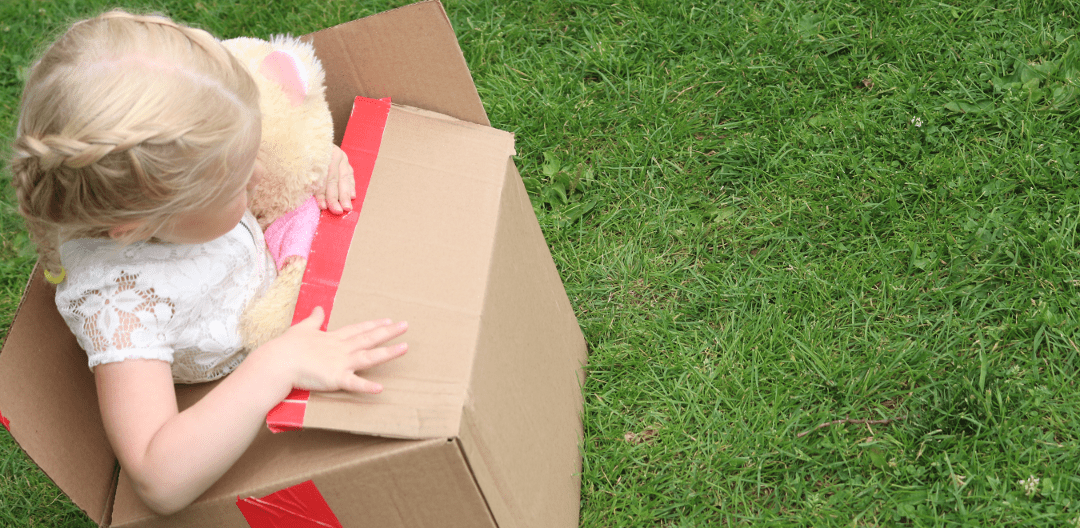Driving in the car, I’m ticking off items from my to-do list – and berating myself. I feel like I’m always behind, constantly running late, constantly worried. Every day, I block out time for creative writing on my calendar, but something else always seems more urgent.
The vulnerability of play
When I finally sit down to write after a long break, it feels uncomfortable. I grip my pen tightly, and nothing happens. Self-doubt creeps in. Frustrated, I head outside and kick at big clumps of dirt until the tension eases. If play is supposed to be so good for us, I wonder, why does it sometimes feel so hard?
I miss spending time with children. My stories feel outdated and my once-sharp playwork instincts have grown dull.I remember the moments clearly – children arriving at a play site for the first time, their faces lit with awe. Days or even minutes later, those same children would be brimming with confidence and joy, swaggering through the space. There was a special feeling stepping into a vibrant play site: like entering a world you could never have imagined on your own. I used to get there early, coffee in hand, perched on a rickety treehouse platform, looking out.
…but why play?
When Suzanna and I were talking about themes for this month, ‘why play’ seemed like an easy choice. It’s a reflective question that comes around every so often, both in justifying this work to others and checking in with ourselves. Why do we care so much about the importance of play, and is that the best response for right now?
Play is a necessity and a fundamental right for children. There are countless benefits which we could spend hours talking about: physical literacy, emotional eloquence, executive functioning skills, creativity, socialisation, therapy, environmental mastery and more. Despite these useful outcomes play is often sidelined and play time is dished out as tiny “treats” as if it is frivolous. Sometimes it’s something we do only when we can fit it in.
For me, play is what takes us beyond merely surviving. I don’t see it as simply a tool for learning or the opposite of work. Instead, I value a broad and generous definition. Play encompasses the full range of human emotion. It can sit at the heart of culture, at the core of our connections. It’s less about specific activities and more about a mindset, one where we explore, take risk and feel truly free. That, to me, is what living really means.
A playworker’s perspective
If the question is ‘why play’ then playwork offers the answer. It’s the practice of supporting the joy and freedom of others. Much of this work is invisible – the most skilful interventions feel like magic. A gentle nudge at the right moment, the quiet threading together of possibilities, a subtle lift in the arc of play. It’s difficult work, especially when our own needs – safety, nourishment, play – are unmet.
Playwork means showing up for children, and for others, in a very particular way. We aim to be compassionate, grounded, and open-hearted. Just like play itself, playwork requires a set of skills that grow with practice. We learn to witness children’s strong emotions, offer support without judgment and invite moments of joy. In every community we support, the importance of play shows itself not just in smiles and laughter, but in resilience, healing and hope.
Why play? It’s because it takes effort to listen to your own heart. Because building collective strength isn’t easy. Because freedom is a muscle, and it needs to be exercised.
In times of hardship, the importance of play becomes even more vital. It reconnects us with ourselves, with each other and with the world. Through play, we heal – relationally, emotionally, politically. At its best, play is driven by curiosity and joy, anchored in compassion. It’s also deeply political. Play is radical in its celebration of freedom and joy, a quiet rebellion, a blueprint for a better world imagined – and handmade – into being.
Why care so much about play? It’s because it’s everything.
By Morgan Leichter-Saxby
This post is part of a series exploring some of the most common questions we receive at Pop-Up Adventure Play. Our “Blog Thoughts” work hand in hand with “Video Thoughts” – bite-sized videos that highlight each topic in a more visual, accessible way.
